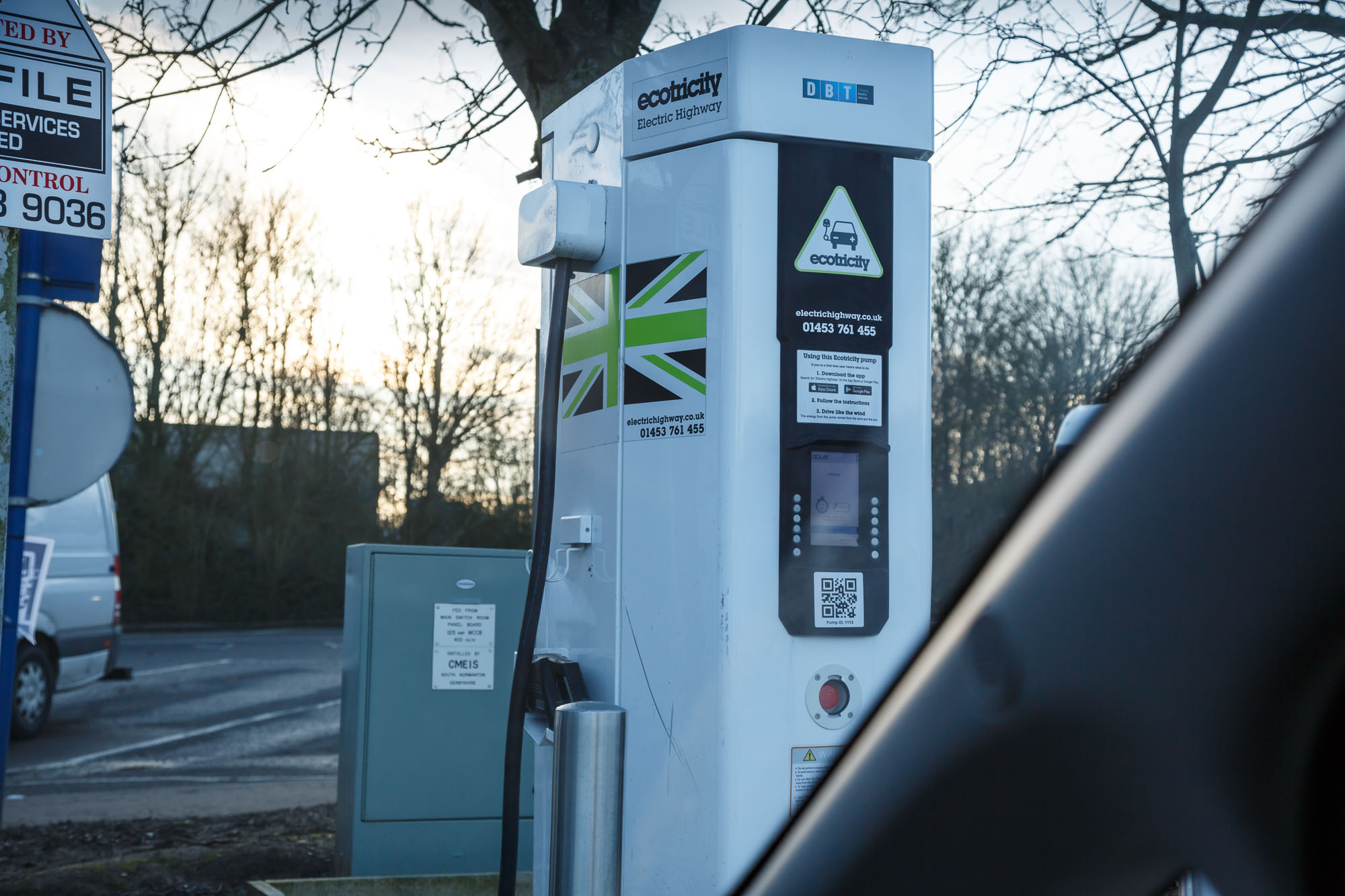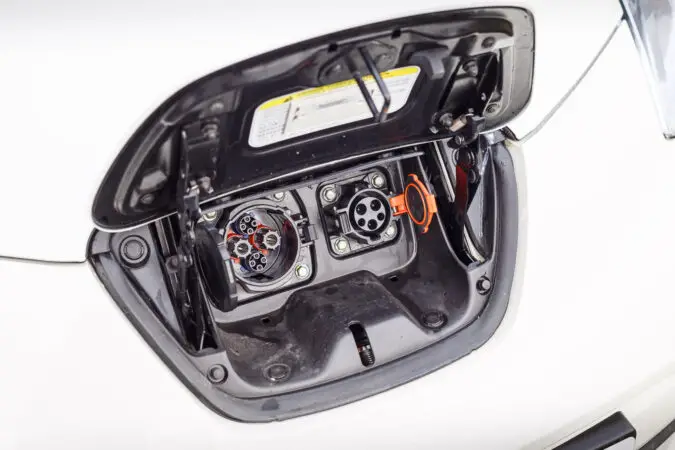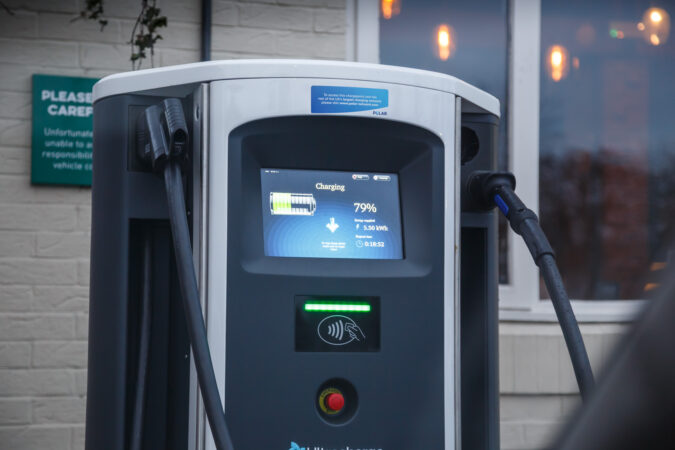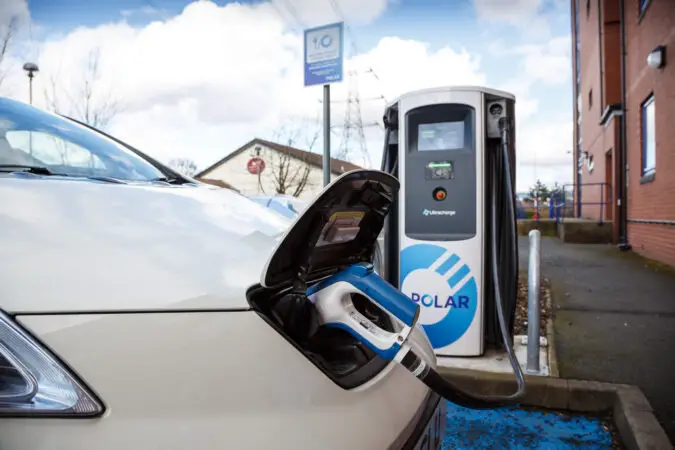If there’s one pitfall of owning an EV – at least, for the time being – is charging it. You’d have to wait a good bit before it fully tops up, which is especially time-consuming if you’re on the move. Then, you’ll have to worry about going through all the hurdles of using a charging station… If you could even find a good one. One wonders then, how long does it take to charge an electric car at a petrol station?
With petrol or diesel, it’s simply a matter of minutes to empty out the nozzle into your fuel tank. With an EV, it’s nowhere near as straightforward. You’ll first have to account for the actual size of your EV batteries – how many kWh it holds. Furthermore, you then need to find out the charging rate of what charger it is that you’re plugged into – is it a fast charger, rapid charger, supercharger, or what?
Electric Car Charger Types
Before we can understand how long does it take to charge an electric car at a petrol station, it’s crucial that we get a grasp on the various charger types. Yes, these can be rather confusing, so allow us to simplify… There are 4 types of EV charging levels – slow, fast, rapid, and ultra-rapid. In essence, these denote the charging outputs, and thus, affecting how long it takes to charge an electric car.
Here’s how they differ (including their charging rates, in kW):
- Slow (mostly either 3.5kW or 7kW) – If you’re plugged into a home EV charger, these outputs are what you would expect. On average, it’ll only add around 10 to 30 miles of range each hour. Depending on how large your battery is, it might take 4 to 8 or more hours to fully charge.
- Fast (between 7kW to 22kW) – This is the rate you’d encounter with most public charging points, and these can sometimes be used for free. Every hour of charging yields you roughly 75 miles at the high 22kW output. To fully charge, it may take as little as 2 to 4 hours.
- Rapid (between 43kW to 50kW) – These are commonly found at service or petrol stations, especially if you just need a quick top-up. At 50kW, you could be adding around 100 miles of range within just 30 minutes. To charge it up to 80% from flat, could take about 25 minutes to 40 minutes.
- Ultra-Rapid (over 50kW, often higher) – There are plenty of ultra-rapid chargers that could do 100kW or higher, sometimes upwards of 150kW or 175kW. These are often found at dedicated EV charging stations. In 30 minutes, it could easily add 200 miles or more worth of electric range.
Electric Vehicle Charging Time
Aha, but you might be curious as to how we calculated those abovementioned figures for how long does it take to charge an electric car at a petrol station. In actuality, it’s pretty simple maths, which can be summed up with this simple equation:
[Battery capacity of your car, in kWh] ÷ [Charging output rate, in kW] = [Time taken to charge, in h]
So, let’s give ourselves an example… Let’s say that your car’s battery capacity is 100kWh, and you’ve plugged it into a 50kW charger. How long would it take to charge?
[100kWh] ÷ [50kW] = [2h]
In this instance, it’ll take 2 hours to fully charge using a rapid 50kW charger.
Or, how about another example… What if your car’s battery capacity is 60kWh, and you’ve plugged it into a 150kW charger. How long would you have to wait?
[60kWh] ÷ [150kW] = [0.4h]
Thus, it’ll take 0.4 hours (or 24 minutes) to charge using this ultra-rapid 150kW charger.
However, while this equation may seem simple, it shouldn’t be used as a direct reference. Mainly, it’s really only accurate as an estimation for how it’ll take to charge from empty to full. It can’t take into account, for instance, if you’re only charging it partially. Moreover, these simple calculations haven’t considered the ‘usable’ battery capacity of your car. Not, mind you, it’s ‘advertised’ capacity.
The latter is quite common in the industry. As such, if a carmaker advertises its battery capacity as a whopping 100kWh, its actual usable capacity might be around 90kWh. So, why is this the case? Well, it’s a safety measure, intended to prevent too high of a depth of discharge (DoD) rate on the battery. The higher the DoD rate, the faster your car’s battery will wear out and degrade over time.
How Long Does It Take To Charge An Electric Car
Now, back to the question of how long does it take to charge an electric car at a petrol station… So, how long does it really take? Well, the length of time taken will depend on what chargers they have there. Let’s use Shell, as an example. Shell’s Recharge network is quickly becoming widespread here in the UK. Most notably, Shell is actually turning some petrol stations into dedicated charging hubs.
Otherwise, they also have charging stations located in car parks, outside of shopping centres, and in other public locations. The latter will only feature Shell’s fast chargers, rated at either 7kW or 22kW. However, going to a Shell Recharge hub, which can be found alongside some of their petrol stations, you’ll find 50kW rapid and 150kW ultra-rapid chargers. Other petrol stations have similar options.
Shell claims that for most vehicles, plugging into a 50kW charger will take just around 30 minutes to get from 0% to 80%. Take this with a grain of salt, as these generalised quotes don’t consider the:
- The size of the battery, as a larger battery (100+ kWh), will no doubt take longer than just 30 minutes.
- Charge rate of the battery prior to charging it, as folks rarely ever charge it from flat (0% charge).
- The temperature of the battery, as a battery will gradually slow down the charge rate as it gets hotter.
- Condition of the charging stations, as they might not always work to charge your car reliably.
- Queues of other cars that you might have to go through before you could even plug your car in.
- The climate around the car, as colder weather can impact a battery’s efficiency and charging rate.
- The well-being of your car’s battery, as an older battery pack, might not be as efficient with charging.
- Charging curve, as the charge rate will taper off once it gets fuller to prevent damaging the battery.
EV Charging Time Samples
In short, we can’t exactly provide a precise quote on how long does it take to charge an electric car at a petrol station. It’ll mostly depend on:
- How much charge did you have at the beginning? The emptier your battery was, the longer it’ll take to top it back up to full or near its max capacity.
- What’s the battery capacity of your electric car? If you have a larger battery, it’ll take more time to fill it up compared to a smaller battery.
- How fast can the charger you’re plugged into output electricity? The higher the output, the quicker it’ll be able to charge your battery back up.
If you do need a point of reference, here’s a chart of how long it might take. These samples are based on 4 average battery sizes, and the time taken to charge from 20% to 80%. Just be sure to use this as a guide, and note literally so:
| Battery Capacity (Right) Charging Rate (Below) |
25 kWh | 50 kWh | 75 kWh | 100 kWh |
|---|---|---|---|---|
| Level 1 (2.3 kW) | 10h 30m | 24h 30m | 32h 45m | 43h 30m |
| Level 2 (7.4 kW) | 3h 45m | 7h 45m | 10h 00m | 13h 30m |
| Level 2 (11 kW) | 2h 00m | 5h 15m | 6h 45m | 9h 00m |
| Level 2 (22 kW) | 1h 00m | 3h 00m | 4h 30m | 6h 00m |
| Level 3 (50 kW) | 36 min | 53 min | 1h 20m | 1h 48m |
| Level 3 (120 kW) | 11 min | 22 min | 33 min | 44 min |
| Level 3 (150 kW) | 10 min | 18 min | 27 min | 36 min |
| Level 3 (240 kW) | 6 min | 12 min | 17 min | 22 min |
Summary
In summary, we can conclude the question “how long does it take to charge an electric car at a petrol station” with somewhere between 30 minutes to an hour. Again, this is a rough approximation because it doesn’t account for a wide range of factors. But if you need a quick answer, there’s that. When you start charging, the charging app or charger itself might display an estimate for how long it’ll take.
Moreover, most EVs would also display an estimate on the dash or infotainment screen while you’re plugged in. Either one is a far more accurate calculation for how long it’ll actually take compared to our calculations or examples here. The good news is that EV charging is steadily becoming faster as well as more reliable. Who knows, there might come a day when it’s faster to charge than to fill up.




